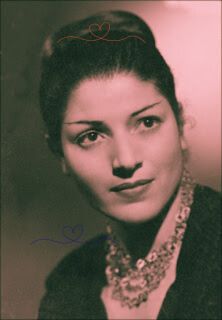
Marcin Silwanow: „Motyw osobisty”
2025-11-17
Jan Niementowski: Zbudzona pieśń
2025-11-22Monica Mary Gardner: Adam Mickiewicz: The National Poet of Poland

Mickiewicz spent two winters in Rome, those of 1829-30 and 1830-31. During the first winter, he went much into the brilliant Roman world, and jfrequented the society of artists and writers. He became intimate with Rome's every stone. He told his daughter once that Rome was the one place in all the world that he knew best after the two Lithuanian towns he had lived in as a boy ; and in the same letter he recalls the profound impression that the Eternal City had made upon the mind of the young man who, brought up in Lithuania, had looked from afar to Rome as a vision never to be realised. But, unlike Krasinskiy he has left no record of the Eternal City in his poems beyond a few album verses that he wrote for Henryka Ankwicz, in which their friendship plays a far larger part than the monuments they visited together, and his poetical dream of the same lady composed after he had left Rome. Yet in a great measure it was Rome that inspired Mickiewicz to write the third part of The Ancestors. As he wandered about the Eternal City and meditated upon her memories; as, at the same time, his soul was fighting its way through his spiritual difficulties to the light, he felt himself filled with the desire of composing a great mystical drama on a Christian Prometheus. He never carried out his conception as it first stood, but it merged into his second Konrad, the Polish Prometheus, who, bearing the sorrows of millions in his heart, sank beneath their weight.
Even before he had left his country, the religious faith of his childhood had waned— or, rather, its fervour and his fidelity to its practices, for Mickiewicz was never a sceptic or unbeliever. As we have seen, the influences that surrounded him in Russia had not made for his spiritual welfare. But Oleszkiewicz's words had dwelt in his heart, and in Rome his long interior travail ended in peace, Himian influences came to play their part in this history of his soul. He made a warm friendship with Henryka Ankwicz and her cousin, Marcellina Wereszczak, he fell in love with her. This, the second real and the last, love of his life^ was of a poetic and spiritual nature. As he was crossing the Spliigen on his way into Italy, he had written a farewell poem to Marya, words of passionate longing and bitter reproach.'
After, in her turn, Eva had left his life, he recorded his love for her too in verse. For, besides her commemoration in The Ancestors^ and the slight role that she plays in Thaddeus of which more later, Mickiewicz has left another poem to her. Dreaming of her one night in Dresden, he woke and wrote out his dream in verse. He sees her with the scent of the Roman roses about her, as he had seen her when they were on the Alban Hills together. Her face was beautiful with the light of Paradise, and, as the poet gazed into her eyes, his soul was filled with an enchantment not of the rude day, irradiated with a joy deep and sacred as though he knelt in church. Then, in her ethereal presence, he remembered all his moments of passion and of sin, and, with a heart rent asunder, feeling himself unworthy of her and of joy and of Heaven, he woke, weeping. For Marcellina, Adam broke the silence that had fidlen on him since he left Russia, and which had onljr been relieved by the poem written on the Splugen. He went with the Ankwicz family for a few days' tour in the Campagna towns. When in Genzano— that old-world, grass-grown place of pilgrimage — Adam spoke of religious topics with such eloquence that tears rose to Marcellina's eyes. Mickiewicz saw her tears^ and he put the poem dedicated to her and which he composed as they journeyed homewards over the Campagna, into her hand after they re-entered Rome. This poem is remarkable not only for its high literary qualities^ but also for the intense religious feeling that marks how far the poet had travelled on his soul's journey since he had first turned his face to the Eternal City.
It is evident from these lines, as Dr. Kallenbach has pointed out, that Mickiewicz must have passed through profound religious emotions. The poem illustrates that side of his mind that dwelt much in the land of spirits. Anything in the nature of visions attracted him. At different times, he steeped his soul in Behme, Swedenborg, and Saint-Martin.
In 1830, Mickiewicz left Rome to spend the summer months between Italy and Switzerland. Travelling through Switzerland with Odyniec, he met for the first time the future poet, Zygmunt Krasinski. Krasinski, who was in riper years to rise as the great mystic teacher of his people, was then a boy of eighteen, carrying with him a tragedy that had blasted his youth. His father had played a distinguished part in the Polish legions under Napoleon. Since then, he had given himself to the Russian Government, thereby incurring the contempt and hatred of all his nation. Young Zygmunt's position between filial aflection and an ardent patriotism became too painful to permit him to remain in Poland. He wandered abroad, his life ruined, his sore heart filled with a passion of love for the country which he might not serve. He was studying in Geneva when he first met the great poet, to whom he stands only second in the history of his nation's literature, and he joined Mickiewicz and Odyniec for a short tour. At first, the sensitive, morbid, highly-gifted boy did not take much to Mickiewicz, and complained that he was cold and gloomy. However, before they had been long together, Krasinski conceived an enthusiastic admiration for Mickiewicz that he never lost.
Mickiewicz's stores of learning, his knowledge of apparently every book that had ever been written — as said Krasinski — were alone enough to captivate the latter's fancy. But more than that behind Mickiewicz's tranquil bearing and calm, sad face^ young Krasinski discovered the hidden fire, and expressed his conviction that Adam's influence would be of benefit to all his own future life. The older poet, who never allowed himself to be conquered by his sorrows^ and who for all his griefs was always a stranger to either morbidity or self-introspection, both of which, through his cruel circumstances, ever ravaged Krasinski's character, tried to impress his ideals on the mind of the young beginner. He urged upon him his conviction that truth only was attractive and beautiful, and that, in the age in which they were called upon to write, a fine style without thought availed nothing. That thought, said Adam earnestly, was everything, and it behoved them always to be seeking the truth, and never to allow themselves to be led astray by mere show.' The lives of Mickiewicz and Krasinski crossed each other too seldom to enable them ever to become intimate friends, but Krasinski always watched the great poet from afar with a deep esteem, albeit a time came when he, with many others, mourned for the line that Mickiewicz had followed. Mickiewicz, on his side, ranked Krasinski's play. The Undivine Comedy^ so highly that he analysed it in no less than four lectures out of one course before a brilliant Parisian audience.
On his way back to Rome, Mickiewicz heard that all was over between him and Henryka, the latter's father refusing to entertain the idea of his daughter making so poor a marriage from a worldly point of view. Mickiewicz returned to Rome. During this, his second, winter in the Eternal City — the winter of 1830-31 — Mickiewicz shunned society. He shut himself up in his rooms, and^ yielding himself wholly to the deep impression of the Eternal City, he devoted his days to thinking on the things of the soul and putting his mind in order. The short poems that he wrote in Rome all speak of those themes with which his thoughts were filled.' The triumph of faith and humility over the human understanding, Christ manifesting Himself to the lowly and refused by the proud and learned^ are his favourite topics at this time. But in his Evening Colloquy he unveils the secrets of his own soul and, in the solitude and silence of the night, we hear his cry to his Creator, the cry of the wanderer who had returned to his goal through pain and penance.
If, throughout this book, I dwell upon the religious side of Mickiewicz's character, I do so because religion, from the date of his stay in Rome, becomes his life. His whole heart gave itself to his country and his God. Mysticism — that eternal inheritance of the Polish race — is one of the chief factors in the history of Poland's greatest poet, and the foundation upon which he built his political and national theories.
Although the nostalgia of exile never left Mickiewicz, and he still yearned for the comradeship of the youths in whose brotherhood he had lived, his life in Rome up to the November of 1830 was a happy one. His soul had found rest. For a while he was relieved from financial difficulties. He had the joy of being with Stefan Garczynski who had followed him to the Eternal City. Of all those many friends whom Adam loved upon this earthy Garczynski became the dearest to his heart. It was in Mickiewicz' s arms that his short life closed : and that early death was to be one of Adam's deepest griefs. Garczynski had been somewhat smitten by Hegel ; and Mickiewicz's endless and playful disputes with his friend on the subject did no little good to his own soul by strengthening his convictions. But
Mickiewicz all his life was "fey." Never, as he himself noticed, did he enjoy a brief breathing spell from his heavy troubles but that the tempest broke upon him with redoubled fury. Those months in Rome were the last of his bright days. On November 29th, 1830, the Rising broke out, and he to whom the sorrows of his nation were as his own never again knew what it was to have a light heart.
Some dark foreboding of the truth seems to have hung over him, for his poem, To the Polish Mother was written before that fatal day. Its exact date is uncertain, but it appears as though it were for the most part composed in the journey that he had taken with Odyniec, some months earlier, on those wonderful shores washed by the Mediterranean between Genoa and Pisa. It is said that the pictures of the Blessed Virgin giving a toy cross to the Divine Child to play with that Mickiewicz often saw during this tour in Italy, gave him one of the motives for the lines that he consecrated to the sorrows of the mothers of his race. He wrote them under the melancholy impression of the death of two Philomathians, the first of the band to die in exile. The lonely passing of the one who had breathed his last in Siberia long haunted him.
'" The death of our friends/' he wrote to another friend, " woke me from a dream with hope. Will it be our lot merely to sigh for the Jerusalem of our return, and for a life led together once more, while we die one by one ? ".
Monica Mary Gardner, "Adam Mickiewicz: The National Poet of Poland"E.P. Dutton & co, London 1911 (fragment)
Adam Mickiewicz's farewell to Maryla Wereszczakówna, painting by Tomasz Łosik from 1876 (pl.wikipedia.org).




